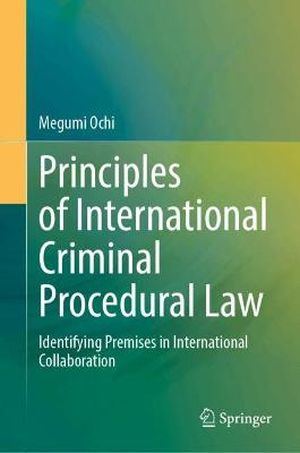
What are the premises unique to international criminal procedures that differentiate them from the domestic law of any State? International criminal procedure refers to the procedural law that governs procedures before the International Criminal Justice Institutions, e.g. the International Criminal Court (ICC). This book examines the principles of international criminal procedure from the perspective of the circumstances and values (= premises) on which they are premised. It applies Premise Theory of general principles of law and conducts a comprehensive empirical analysis of the Court's practice, and reviews the premises that have been proposed by previous research that has adopted a mainly teleological or theoretical approach. Specifically, it examines the principles that govern international criminal procedures, especially the activities of the ICC, in the chronological order of the procedures (investigation prosecution (indictment) extradition (prohibition of) trial (in absentia) redress for the rights of accused persons examination of evidence reparation for victims) and highlights their characteristics by comparing them with the legal principles that govern similar phenomena in domestic laws.
Based on the empirical findings, this book reveals some of the premises inherent in the ICC's procedural legal system, which are, in fact, distinct from the primary emphasis in the preamble of the ICC Statute. The preamble refers in broad terms to the seriousness of the core crimes and the importance of "the prevention of impunity" and the need for all States to exercise their criminal jurisdiction to prevent these crimes and to make this possible through international cooperation, as well as to the importance of the ICC's role in the prevention and punishment of crimes committed by States. In procedural practice, however, the ICC's complementarity to national sovereignty, the second factor of the ICC Statute, as well as the obligation under the law of treaties and the human rights of the accused, which do not appear in the preamble, seemed to play stronger roles in the determination of the procedural principles applied at the ICC.